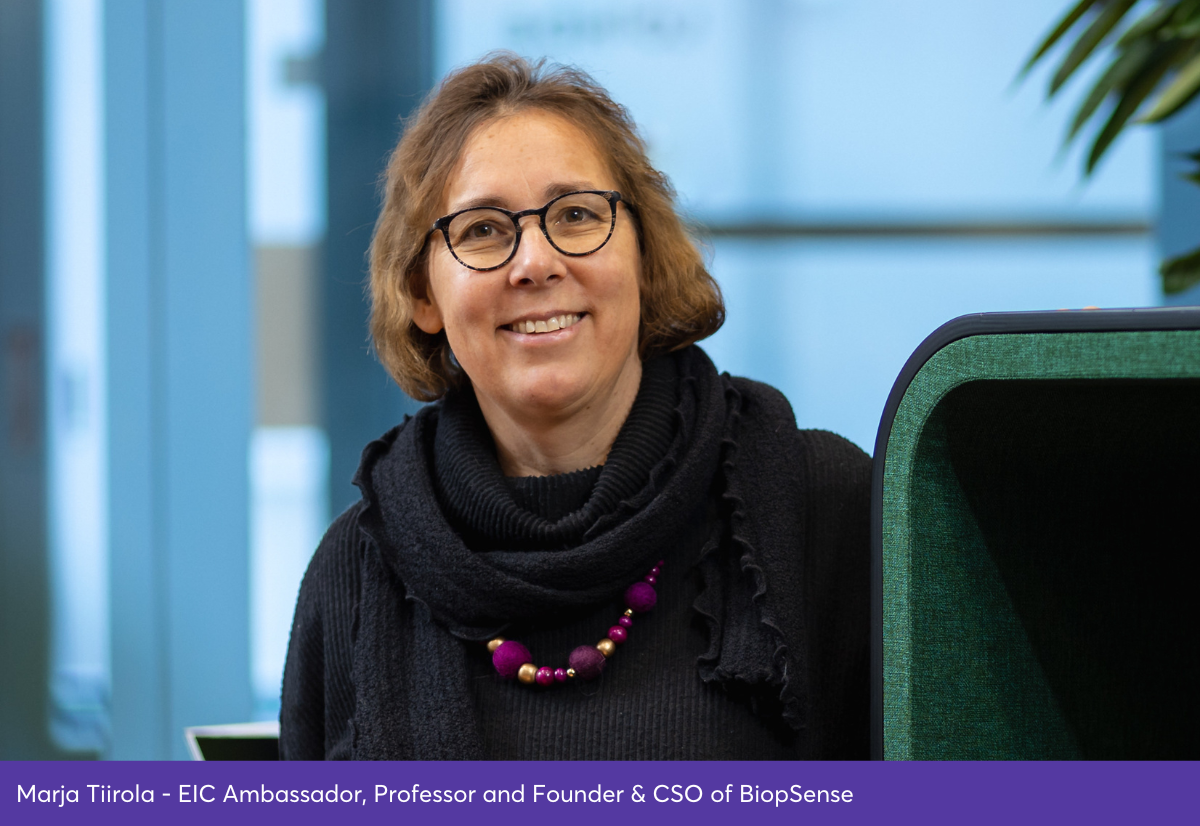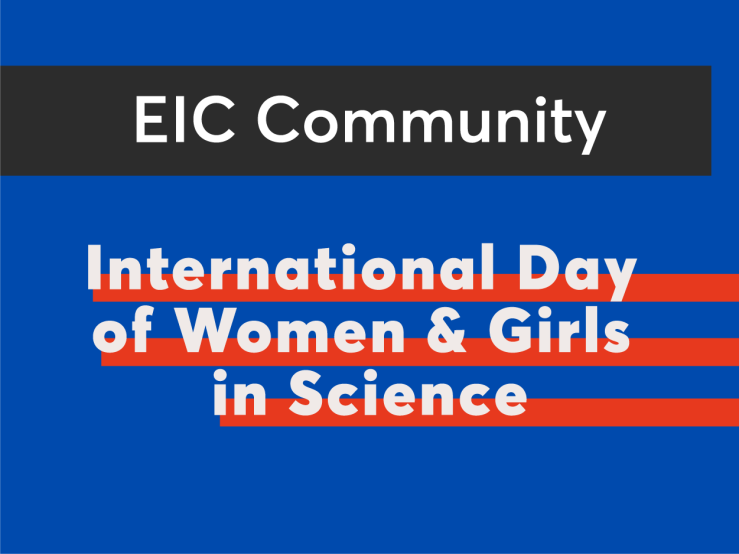For this year’s International Day of Women and Girls in Science, we have invited Marja Tiirola, EIC Ambassador, Professor and Founder & Chief Scientific Officer of EIC-funded BiopSense, to walk us through her experience in the world of science and research, and to tell us how, one day, her lab work turned into a business idea. BiopSense, that is developing cutting-edge techniques for blood sample preparation and transport, has received EIC support through a Transition Challenge grant that is managed by Marja. Being a multifaceted scientist, now she is also one of the EIC Ambassadors and joined us to celebrate 11 February, the International Day of Women and Girls in Science. Continue reading and get inspired by Marja’s strong-willed testimony!
How did your passion for molecular biology start, and what is the most rewarding thing for you in working in this field?
After my MSc in Agriculture and Forestry I wanted to go deeper into the roots of science. I got my own PhD grant for studying DNA-based microbiome analysis, and I was accepted in the avidin-research group of Professor Markku Kulomaa. In the beginning I needed to read biochemistry books and self-educate myself to acquire the same level of knowledge other group members had. But, the enthusiasm for molecular technology connected us tightly, and the laboratory was always busy. Success in experimental work was not granted, but, at best, you could see visual DNA fragments or E. coli colonies appearing - one successful study compensated lot of error trials! And the same building blocks are universal for all the organisms – from DNA to RNA, proteins and functions, code of life. Now, we get more and more data out from the same experiments and our focus changes from laboratory towards computational works, but still the idea that you can visualise something that you cannot see by your eyes is fancy.
You have been working for many years as a professor, while also leading research projects at the University of Jyväskylä. Can you tell us how the idea of creating BiopSense came to life?
I was really excited by the appearance of the next-generation sequencing technology, as it was something that I dreamed during my PhD study at the turn of the millennium. I remember the day when my colleague told me about the possibility to generate lot of sequences without cloning. We could get thousand times more data with the same effort, or even million times more... That was something that brought our research possibilities in ordinary laboratories to the next level when studying microbiomes, as well as in all molecular biology studies. Then, I started to think what else could be done with the same technology, and although this path did not lead straight to BiopSense, it was the starting point for several innovations, which have led to new projects (European Research Council CoG and PoC, European Innovation Council Transition) and the BiopSense start-up.
Can you explain in more detail what the innovation of BiopSense is about?
Cancer patients come to the hospital one-by-one, but their blood samples are processed in batches or sent to the next place. Sample processing requires laboratory staff and the time delay between sampling and processing decreases the quality of cell-free DNA of the blood. We have invented a fully automated technology which can process blood samples as soon as the blood is taken from the patient. This improves the yield and quality of the critical samples and enables analysis of the cell-free DNA quantity while the patient is still waiting for his doctor’s appointment.

Did you encounter any significant gender-related adversities during your career?
I have met some, but these adversities in the academic field have been temporary. For example, I have had a superior that selected only males for his daily coffee-invites, and you know this is annoying as many things, such as short-term vacancies for example, are agreed in coffee-tables. But when more females become in the leading positions it may turn other way round.
I want to support female colleagues as much as I can to compensate the good-fellow system, although I do not otherwise think it has a value in science if you are male or female.
What's the most important thing you're working on right now, and how are you making it happen?
My main career has been in the field of molecular microbiology, which is a very important research field in agriculture, environment, and health, but as I’m aging, I have become more and more interested on cancer diagnostics and drugs. Besides pushing the BiopSense technology forward, I am now working hard with my group to get proof-of-concept and funding for another invention, which is also connected to companion diagnostics, namely drug selection. We have learned that health-related inventions do not actualise quickly, but need courage, many years of hard work and clinical studies before they are approved, so we have a goal.
Are you able to identify any female scientist / teacher / colleague that has inspired you to pursue your goals in your career? How important do you think it is to have these role models?
I have a younger colleague, Dr. Päivi Saavalainen, who has developed a new technology for spatial transcriptomics (SCellex) but has also many other inventions on her desk. It is very empowering to meet her, and we feel deep sympathy when wishing good luck to each other. You have many exciting things in your daily life: academic career, teaching, business. All those things together take your time 24/7, and you should still take care of yourself and, especially, of your best treasure: the family. There is a big potential for burn out, but stepping out of some of the positions you occupy is not an option for you today.
What encouraging words would you share with young women thinking about a job in science or technology?
Things can be organised if there is a will. I have an old note beside my office door: “The most important thing in achieving goals is the will. The one who wants, finds the means. The one who doesn't want to, invents explanations. So, think every day whether you were hired here to invent means or ex post explanations.”


